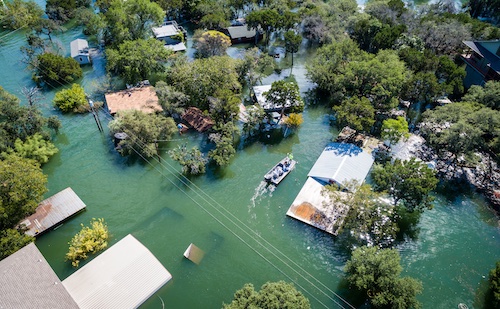Help solve climate change with tech for good
Learn about the crisis, explore the global sub-themes, and begin building with a starter kit.
Answer the Call for Code Global Challenge.
Overview
A global crisis affecting us all
Climate change has the potential to impact every living organism on the planet. For humans, its impact is already being felt across the continents. It is changing how we live, how we work, and how we interact with the environments we share with our fellow inhabitants of this planet. The situation is critical: Exhaustive scientific research has confirmed changing weather and temperature patterns, rapidly rising sea levels, and an intensifying proliferation of extreme weather events around the world.
9.8 billion
By 2050, the global population will reach 9.8B people, exerting further pressure on Earth’s resources.
3 to 5 degrees
By the year 2100, global temperatures are projected to increase 3 to 5 degrees Celsius (5.4 to 9 degrees Fahrenheit).

Sub themes and starter kits
Three global focus areas
Given the far-reaching and devastating effects of climate change, we have divided the 2021 Global Challenge into the three sub-themes below. While some of you already know what your Call for Code solution will look like, many of you will want to explore the detailed starter kits that correspond to each sub-theme before you begin. These quick-start guides will help you understand the scope of the problem and begin building applications tied to easy-to-understand use cases in a matter of minutes.
“The climate crisis is caused by us – and the solutions must come from us. We have the tools: technology is on our side.”
— UN Secretary-General António Guterres